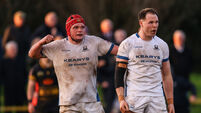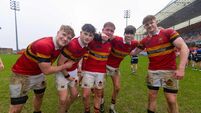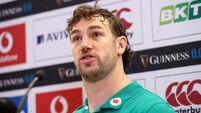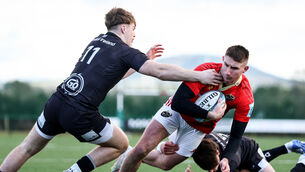Dolphin can swim with the big boys, says T’Pau
Player-coach of Old Crescent, the team pipped by Dolphin for promotion and beaten again by the Cork side in last Saturday’s Division Two final.
During his six years in Ireland, the 38-times capped Tongan international has played in every division of the AIL, including the old fourth division.















